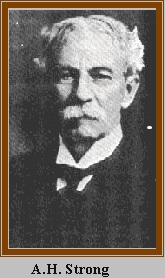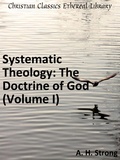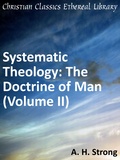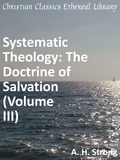A. H. Strong
American Baptist minister and theologian
Biography
Augustus Hopkins Strong was born in Rochester, NY on August 3, 1836. He was brought to Christ while attending Yale College, from which he graduated in 1857. He began his theological studies at Rochester Theological Seminary and completed his D.D. in Germany.
After serving Baptist churches in Haverhill, Massachusetts, and Cleveland, Strong was elected president of Rochester Theological Seminary in 1872. He was an active promoter of Baptist missions throughout his life, and from 1907 to 1910 he served as the first president of the Northern Baptist Convention (now the American Baptist Churches in the U.S.A.).
In his forty years at Rochester Seminary Strong taught a theology that combined traditional Reformed emphases, distinctive Baptist convictions on the ordinances and the organization of churches, and a relative openness to modern ideas. He published his multivolume Systematic Theology in 1886. This influential work was revised several times by Strong himself and continues in print to this day. Although Strong was consistently orthodox, he did use the results of modem critical scholarship more than, for example, his near Presbyterian contemporary Charles Hodge. Also, unlike Hodge, Strong was comfortable with the idea that God may have created the world through the processes of evolution. In the 1907 edition of his theology, Strong summarized his views on modern thought: "Neither evolution nor the higher criticism has any terrors to one who regards them as part of Christ's creating and education process."
Yet late in his life Strong spoke out strongly against those who used modem thought to compromise belief in Christ's divinity or his saving work. In the 1907 revision, Strong proposed the counter to modernism that he maintained until he died: Christ as "the one and only Revealer of God, in nature, in humanity, in history, in science, in Scripture."
For Baptists and many more Americans, Strong's Systematics and other carefully crafted books have proven themselves enduring guides to the riches of the faith.



